KEY HYGIENE BEHAVIOURS: A SHORT GUIDE
7 KEY HYGIENE BEHAVIOURS

Safe use of Toilets: a toilet must encourage hygiene behaviour and provide privacy.
And must have:
- Easy access (close to a class room for example)
- Suitable dimension with enough capacity
- A handwashing place with soap, water and cleanising materials
- Operation and maintenance plans with budget
- Proper footpaths, gardens and brightly painted walls
- No hazardous materials/items
- Adequate supply of sanitary pads for girls' toilets
- Dustbins/pits must be emptied regularly

Handwashing with Soap and Water:
- Hand washing with soap and water prevents diarrhea and pneumonia.
- and washing with soap can reduce diarrheal incidences by 44%.
- Hand washing with water alone is not enough. Hands must be washed with soap in running water for at least 20 seconds.
- Always wash hands before and after handling food after using toilets, after working, playing and after handling pets/animals.
- Tippy taps are easy and effective in providing running water.
- Institutionalize daily mass handwashing in schools before meals.
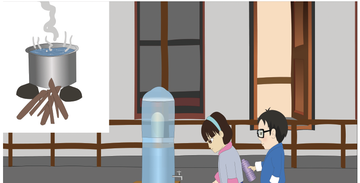
Use of Safe Drinking Water:
- Regular cleaning and sealing of leakages is must to ensure water quality.
- Boil water for atleast 3 minutes as it is the most effective way to kill germs.
- Use ceramic filteration or candle filters which have 99.9999% fecal coliform removal efficiency.
- Always use clean container to store drinking water.
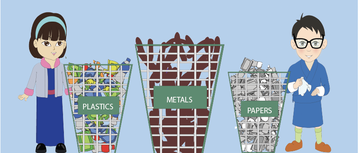
Waste Management:
- Reduce, Re-use and recycle waste and practice waste segregation.
- Dispose solid and liquid waste quickly and safely.
- Clean classroom and surroundings regularly.
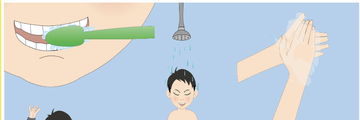
Personal Hygiene:
- Promote regular brushing, bathing, cutting nails, washing and wearing clean clothes.
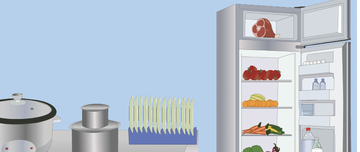
Food Hygiene:
- Wash hands before preparing food.
- Wash vegetables and cook food regularly.
- Use safe water for cooking and drinking.
- Food must be stored properly.
- Plates, mugs, ladles and utensils must be washed properly.
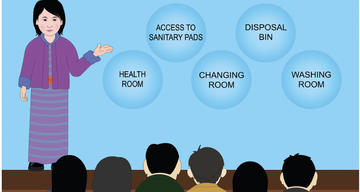
Menstruation Hygiene Management
- Pre-menstual symptoms are: pain in abdomen, bloated and puffy feeling, headache, emotional and psychological change.
- School girls are affected psychologically and physcially due to various issues such as cleanliness of toilets, privacy, availability and disposing of sanitary pads.
- School should make changing rooms available which offer privacy with soap, water and sanitary pads.
- School should provide education on menstruation hygiene management.
PRODUCED BY COMPREHENSIVE SCHOOL HEALTH DIVISION, DEPARTMENT OF YOUTH & SPORTS, MINISTRY OF EDUCATION WITH SUPPORT FROM UNICEF.
Average Rating: ☆ ☆ ☆ ☆ ☆ (0 reviews)

